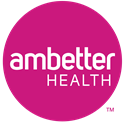Small businesses (employers with less than 500 employees) are the backbone of the American economy. They are responsible for about 50% of total jobs in the private sector.
The United States’ economic backbone is currently experiencing a perfect storm of financial uncertainty, rising costs at all levels, and a growing threat of an economic downturn. Many small business owners seek solutions to protect them as much as possible from this perfect storm.
Cost mitigation is a key concern that needs solutions, and one of the larger costs these businesses incur is employee health insurance costs. There are A LOT of different aspects impacting small businesses in this area, so we’re excited to share a fantastic resource of data and information on this subject.
JP Morgan Chase just finished a comprehensive multi-year research study called “The Consistency of Health Insurance Coverage in Small Businesses: Industry Challenges and Insights on the Small Business.” This study does an excellent job of breaking down small businesses’ challenges in providing consistent healthcare coverage to their employees.
There Are 4 Key Findings in the JP Morgan Chase Study
- “Nearly one-third of small businesses dropped health insurance coverage from one year to the next, with rising health insurance burdens as a contributing factor.”
There are differences between industries, with small businesses dropping healthcare coverage. Restaurants, personal services, and repair and maintenance businesses are the most likely to drop health insurance coverage for employees when they face rising costs.
This study has great graphics showing the different industries and how they reacted to rising costs before and after the pandemic. Another graphic shows the likelihood of different industries stopping health insurance coverage for their employees if premiums increase by 10%.
Forbes, at the end of January 2024, provided numbers from the Small Business Administration (SBA). There were over 33 million small businesses in our country. The JP Morgan analysis reveals millions of small businesses drop health insurance coverage for their employees each year, and this trend is accelerating each year.
There are many businesses and individuals needing health insurance solutions from insurance agents like you. Many of these businesses will be sole proprietorships in need of solutions, as revealed in the graphics in the study by industry as well.
- “Most small businesses that stopped paying health insurance premiums continued to operate in the following years.”
Some of these businesses that ended their health insurance coverage for employees did close, but most stayed open. These small businesses can offer health insurance coverage again if the right solution from insurance agents meets their needs.
- “Nonemployer firms with the highest health insurance burdens experienced the largest premium increases, even though the typical firm across industries saw mixed growth rates.”
Sole proprietor businesses are being hit hard with health insurance premium increases. If they maintain health insurance coverage, they need help, and if they drop it, they need help.
Sole proprietors need health insurance solutions, and they should be a top target of insurance agents to target with outreach and thoughtful solutions.
- “For employer firms across all industries, payroll expense increases explained the decrease in health insurance payroll burden over time.”
Small businesses are increasing employees’ salaries at a faster rate than the costs of health insurance. As a result, health insurance costs have decreased as a percentage of total costs relative to wages.
This masks the trend of rising health insurance costs these businesses are experiencing, which still impact their bottom line. These small businesses still need solutions to positively impact their health care costs to increase their margins.
The Implications for Small Business and Insurance Agents
JP Morgan Chase ends the study with three implications from the study. Here are some specific solutions small businesses may need from you due to these implications:
- Help sole proprietors who need solutions now: Individual policies are on the table, but can ICHRA be an option for them, too? Tailor the solution to the individual’s needs.
- Consider level-funded plans for healthy, low-turnover teams. These plans offer predictable costs with possible refunds, making them excellent options for younger teams.
- Bundle ancillary benefits: In its last implication, the study mentions concerns about passing the increasing costs of health insurance along to employees in higher cost shares, deductibles, and premiums. Hospital indemnity, dental, vision, life, disability, and other ancillary policies that pay for medical cost shares and other illness costs (AFLAC?) are surprisingly affordable and add significant value for employees.
Owners with access to these policy solutions may keep health insurance coverage for employees if they make these solutions available to them to mitigate costs for everyone.
- Educate owners on tax benefits: Many small businesses don’t realize how offering health insurance and funding HRAs/HSAs can reduce their tax liability. Educating them about these benefits and options can open a closed door for health insurance coverage with these solutions, lowering costs.
Small businesses are looking for solutions to help them weather the perfect storm. Insurance agents are perfectly positioned to deliver these solutions.
A diverse solution portfolio is key to finding the right solution for a sole proprietor or small business. Agility’s entire product solution portfolio is available to solve the small business healthcare dilemma.
Contract now on any ACA, Medicare, Life and Annuity, Small Group, or Supplemental Ancillary solution to add to your insurance portfolio. Our team can also discuss ICHRA options!
Register today for Agility training on your products of choice to present to your small business clients. Contact Agility at (866) 590-9771 or email [email protected] for a free small business brainstorming strategy session. Agility can also add you to our free, weekly email list for tips and vital information!



